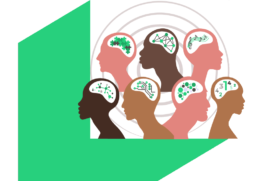
Neurodiversity Toolkit
Neurodiversity Toolkit
Toolkit collated by Catrina Lowri
What Is Neurodiversity?
The word ‘neurodiversity’ is an umbrella term to describe a large range or hereditary and acquired conditions that cause differences in brain development. The term was first used by the sociologist, Judy Singer. Singer wanted to move away from the medical model of brain differences in conditions such as autism, ADHD and dyslexia and replace this with a social construct. Through her diligent, peer reviewed research, she hoped to move the focus away from the idea of deficit and disorder and bring it, instead towards strengths and needs. Singer believed that this would create a better understanding of the range of conditions and eventually lead to greater acceptance.
Although originally the term only included characteristics of autism and ADHD, the social construct is now used to describe:
- All hereditary conditions which cause a difference in neurology
- All hereditary mental health conditions
- All acquired neurological difference such as those caused by injury
Singer, however was keen that the term she first coined should ‘include all of humanity, not just the neuroatypical’ … ‘as a banner for a new social movement of neurominorities to argue that just as biodiversity is necessary for a flourishing ecosystem, so ND is for a flourishing society.
- Dyslexia (approximately 1/7 people)
- Dyspraxia/ Developmental Co-ordination Disorder (1/10)
- Dyscalculia (1/10)
- Attention Deficit, Hyperactivity Disorder (1/20)
- Autism (1/28)
- Developmental Language Disorder (1/7)
It is estimated that as many as 1/5 people have at least one neurodivergent condition. Around 70 percent of ND people have 2 or more conditions.
- Sensory processing difference
- Speech delay
- Processing issue
- Executive functioning difference
- Perceptive difference
- Low self esteem
- Creativity
- Empathy
- Hyperfocus
- Persistence
- Vision
- Imagination
The Diverse Educators’ Neurodiversity Toolkit
- What are hidden disabilities?
- What is neurodivergence?
- What are the strengths and needs of neurodivergent people?
- What are the differences in the brain and how does this effect neurodivergent people?
- How common is neurodiversity?
- How might neurodiversity effect learning?
- What does this mean for neurodiversity in working life?

